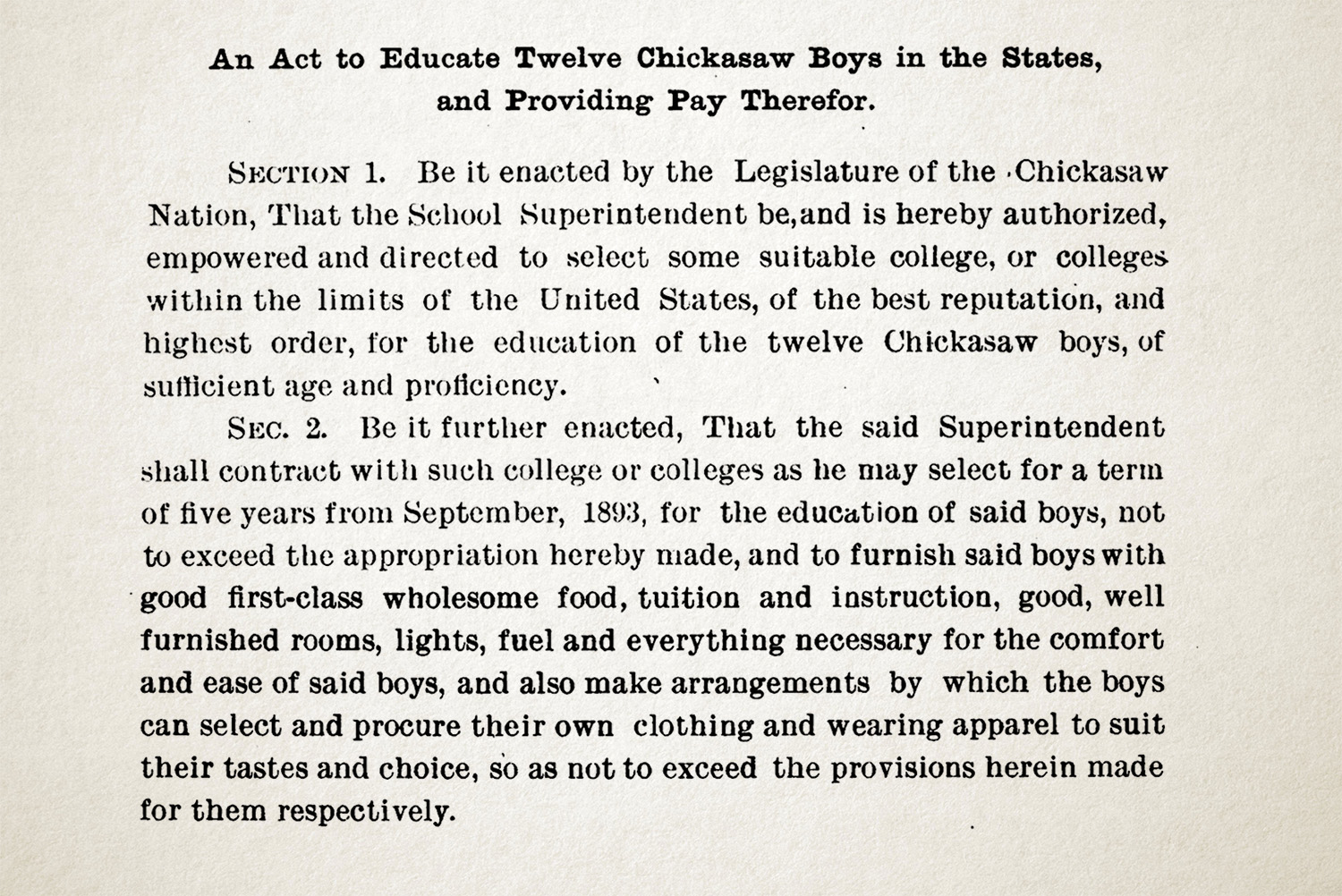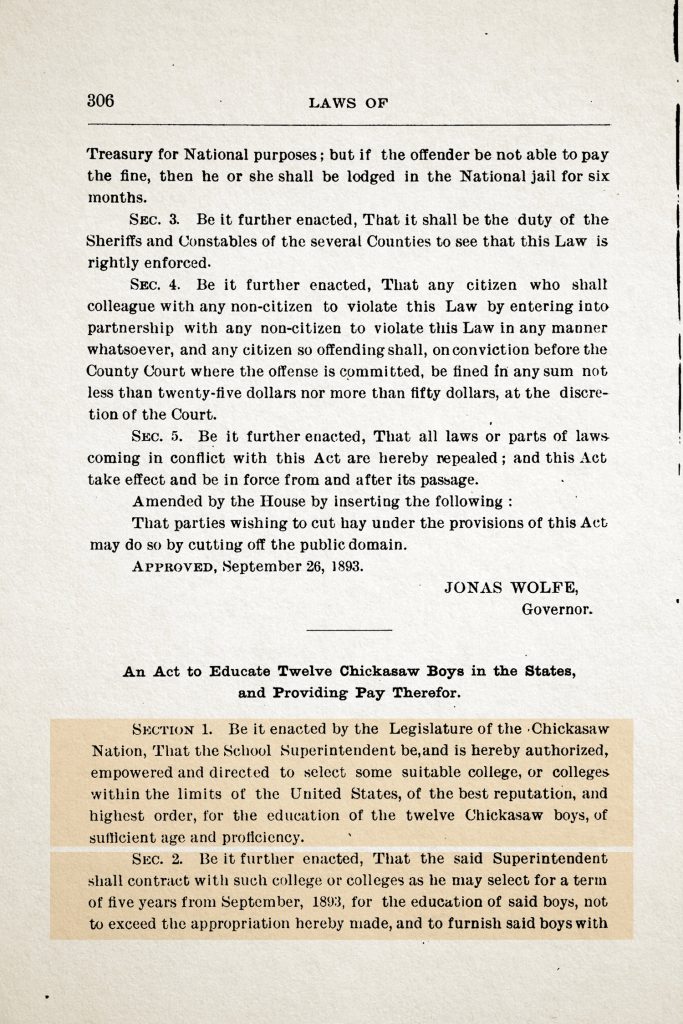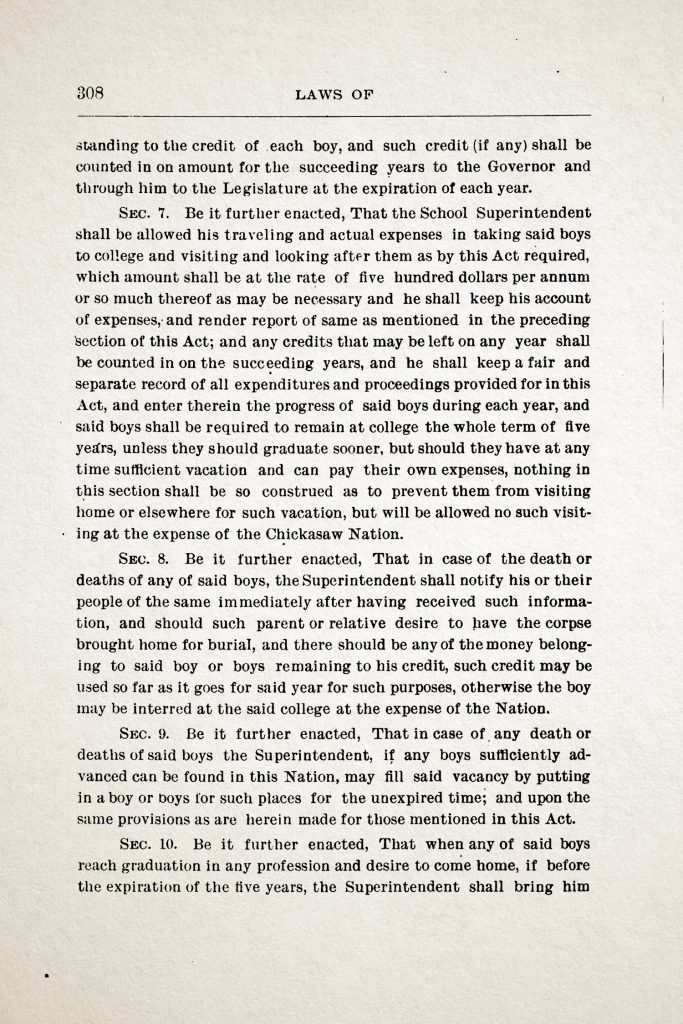[An Act to Educate Twelve Chickasaw Boys in the States, and Providing Pay Therefor.]

From Davis A. Homer, Constitution, and Laws of the Chickasaw Nation Together With the Treaties of 1832, 1833, 1834, 1837, 1855 and 1866
Parsons, Kansas: Foley Railway Printing Company, 1899
reproductions
Alyne Queener Massey Law Library, Vanderbilt University
In September 1893 the Chickasaw legislature voted to fund the college educations of twelve young men, including nine who had graduated from the Harley Institute the previous spring. The Act empowered the Chickasaw Nation’s education superintendent to select colleges for the boys and ensure that they had “good first-class wholesome food, tuition and instruction, good, well furnished rooms, lights, fuel, and everything necessary for the comfort and ease of said boys” as well as “clothing . . . to suit their tastes and choice.” Each student was given a $300 annual stipend, which was enough to satisfy the legislature’s mandate that they be kept “in comfortable condition, and good style.” According to William Thomas Ward, Vanderbilt’s West Side Row dormitories cost $25 per term and an additional $10 per month for “everything to eat that men could want” at the West Side Dining Hall. “I distinctly remember,” Ward wrote, “that out of the three hundred dollars per annum appropriated for each of us, I had, at the end of the school term, almost fifty dollars to my credit.” The money that the students were able to save would help them launch their post-collegiate lives back in Indian Territory.




